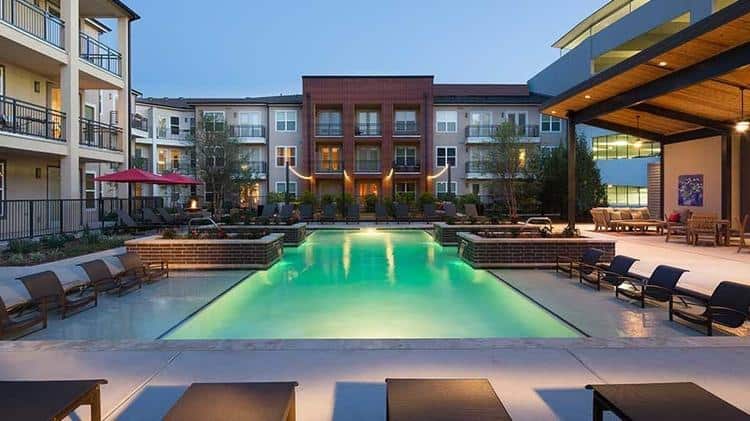COVID-19 Hit on Multifamily Will Be ‘Modest’

Charles Hewlett, a managing director at the company, said during a webinar late last week that the economic turndown should last a relatively quick two months.
Evidence from China, South Korea and Italy indicates “there may be light at the end of the tunnel, and the trajectory of the coronavirus may be of relatively short duration in the US,” he said.
Hewlett, a Brown University graduate, has more than 25 years’ experience in real estate and has consulted on a wide array of commercial and residential properties in many major metropolitan regions. Prior to joining RCLCO, he was president of Lofty Builders, a real estate service company concentrating in renovation, rehabilitation and management of investment real estate properties in Boston.
“If the U.S. follows the same trajectory—a big if—and the data from China is reliable—bigger if—then the curve in the U.S. should begin to flatten by April 25 and go essentially flat by May 6,” Hewlett ventured.
POTENTIAL ECONOMIC OUTLOOK
What some are now calling the Corona Recession will “look like a V or maybe a sharp U,” Hewlett said. “The US and Europe are about a month behind China in terms of the virus spread and economic recovery.”
Unfortunately, while the downturn should run its course quickly, at least as compared to previous downturns, it will be “fairly deep and damaging,” Hewlett said. And the “period of correction” could take as long as 24 months, though 12-18 months seems more reasonable.
In the short run, however, real estate should “prepare itself for at least another month of restrained and contained economic activity,” he said.
Based on previous downturns in 2001 and again in 2008-2009, he predicted that the impact on apartment builders and owners “will be relatively modest. It’s a pretty good story overall…A very reasonable outcome.”
FUTURE OF MULTIFAMILY?
The impact on the rental apartment sector likely will look like the ‘08-‘09 experience, Hewlett said, with “a relatively short but potentially steep period of rental rate declines over 12-18 months totally 5-10 percent (and) moderate increases in vacancy rates but still in a healthy zone.” Then, going forward, he expects “relatively robust rental growth” at a 3-5 percent clip.
Spurred largely by dangerous lending and housing speculation, the 2008-‘09 downturn was the worst since the 1930s. The 2001 recession, on the other hand, was brief and shallow following the dot.com collapse and the September 11th attack. By contrast, the Great Depression lasted a whopping 302 months while the Great Recession ended after 47 months.
As Hewlett sees it, rents this time around will be impacted more than occupancy.
During the ‘01 downturn, the multi-family market experienced nine quarters of negative effective rent growth. The annual rate then was -1.7 percent or a total of -3.9 percent. In ‘08-‘09, the sector went through 7 straight months of negative effective rent growth at an annualized rate of -3 percent or a total of -5.2 percent.
The Great Recession was “shorter but deeper,” Hewlett said. “But it wasn’t terrible.”
Of course, the impact on rents from the two most recent recessions varied, depending on location, he pointed out. Los Angeles and Philadelphia saw no period of negative rent growth in 2001, while Atlanta went through 14 quarters of negative rents totaling -13.7 percent.
And in ‘08, the District of Columbia registered negative rent growth of just -1 percent, while Atlanta took it on the chin again, with eight quarters of negative rents totaling -10.4 percent.
Vacancy rates, on the other hand, “seem to have a floor,” Hewlett also said.
In 2001, vacancies dipped to only 93 percent nationally, while in ‘08-‘09, they fell to 92 percent. Locally, the greatest declines were in Houston; in ‘01, to 87 percent and in 89 percent in ‘08-‘09.
Concessions, meanwhile, seemed to be “fairly restrained” during the last two recessions. Nationally, they averaged 5 percent of asking rents in 2001. But in ‘08-‘09, they ran just under 10 percent. Again, Atlanta was the leader during both recessions.
To fight the virus, RCLCO reported that multifamily companies are taking numerous steps, from closing amenities to evaluating and delaying new starts. Among other things, RCLCO found that multifamily outfits are completing only essential or emergency calls, offering flexible payment plans for those unable to make their rents, waiving late fees, offering flexible renewals with no rent hikes for 90 days and conducting self-guided or video tours for prospective renters.
Source: multihousingnews.com















 Accessibility
Accessibility